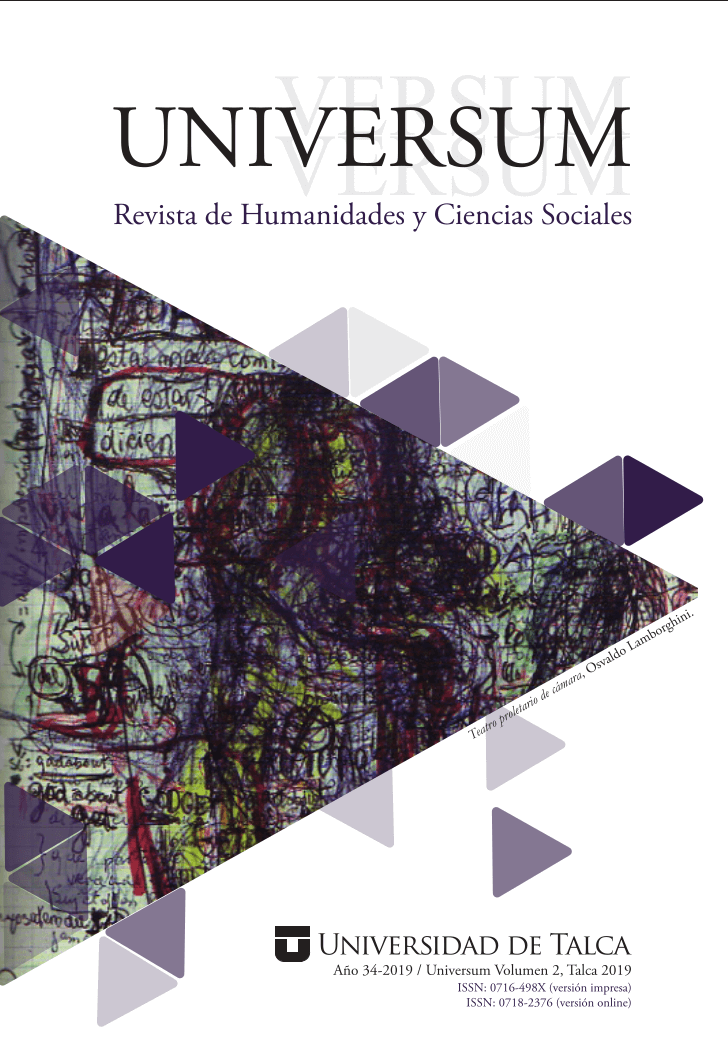Abstract
Graphic novels have become surprisingly popular. This is evidenced in the quality, quantity, and relevance of year-to-year publications, all of which develop interesting narrative and discursive proposals. In the case of Latin America, the production of the last decade has been focused on rescuing, promoting, and developing the autobiographical story genre. Going beyond staples such as Hadashi no Gen, Maus and Persepolis, the local production visualises a number of themes, techniques, and discursive frameworks. All of these contribute to the formation of a text and image-nurtured canvas, driven by the necessity to encapsulate the memory of the individual in an every-day context. This allows the critical (de)construction of the social framework of our continent. The present paper explores the world of autocomics by means of three contemporary authors: Power Paola (Virus tropical, 2011), Agustina Guerrero (Diario de una volátil, 2015) and Marcela Trujillo (Ídolo, una historia casi real, 2017). An analysis of the corpus will show how the stories’ narrators-enunciators unveil —and rebel against— the informing patriarchal framework whose hegemony permeates both the narrated world and the traditional androcentrism of the comic-book industry as a whole.
References
Álvarez, Gerardo. “El texto y su enunciación”. Textos y discursos. Concepción: Universidad de Concepción, 2001. 25-57. Impreso.
Amaro, Lorena. Vida y escritura. Teoría y práctica de la autobiografía. Santiago: Ediciones Universidad Católica de Chile, 2009. Impreso.
Arfuch, Leonor. El espacio biográfico. Dilemas de subjetividad contemporánea. Buenos Aires: FCE, 2010. Impreso.
Bakhtin, Mikhail. Estética de la creación verbal. Trad. Tatiana Bubnova. Madrid: Siglo XXI, 1990. Impreso.
—. Problemas estéticos y literarios. Trad. Alfredo Caballero. La Habana: Arte y Literatura, 1986. Impreso.
Benveniste, Emile. “La naturaleza de los pronombres” y “De la subjetividad en el lenguaje”. Problemas de Lingüística General I. México D.F.: Siglo XXI, 1997. 172-187. Impreso.
Filinich, María Isabel. Enunciación. Buenos Aires: Eudeba, 1998. Impreso.
Guerrero, Agustina. Diario de una volátil. Buenos Aires: Sudamericana, 2015. Impreso.
Guzmán, Alfredo. “Autocómics factuales”. Figuraciones del yo en el cómic contemporáneo. Tesis de Doctorado, Universidad Autónoma de Barcelona, 2017. 227-319. Web. 26 feb. 2019.
https://ddd.uab.cat/pub/tesis/2017/hdl_10803_456586/acgt1de2.pdf
Lejeune, Philippe. El pacto autobiográfico y otros estudios. Trad. Ana Torrent. Madrid: Megazul-Endymion, 1994. Impreso.
El Desconcierto. “Marcela “Maliki” Trujillo y su episodio de abuso de poder: “No pude hacer la denuncia legal porque me dio miedo”. Entrevista dada el 22/11/2017. Web. 19 mar. 2019. https://www.eldesconcierto.cl/2017/11/22/marcela-maliki-trujillo-y-su-episodio-de-abuso-sexual-con-un-editor-no-pude-hacer-la-denuncia-legal-porque-me-dio-miedo/
Osorio, Nelson. “Ficción de oralidad y cultura de la periferia en la narrativa mexicana e hispanoamericana actual”. Literatura mexicana hoy. Del 68 al ocaso de la revolución. Ed. Karl Kohut. Alemania: Vervuert Verlag, 1991. 243-252. Impreso.
Power Paola. Virus Tropical. Buenos Aires: La Editorial Común, 2011. Impreso.
Spang, Kurt. “Acerca de los tonos en la literatura”. Revista de Literatura LXVIII.136 (jul.-dic. 2006): 387-404. Web. 26 feb. 2019. http://revistadeliteratura.revistas.csic.es/index.php/revistadeliteratura/article/viewFile/13/15&a=bi&pagenumber=1&w=100
Trujillo, Marcela. Ídolo. Una historia casi real. Santiago: Penguin Random House, 2017.

This work is licensed under a Creative Commons Attribution-NonCommercial 4.0 International License.
Copyright (c) 2019 Universum (Talca. En línea)

